Our Mission
We inspire Native leadership so our communities flourish.
We strive to protect the rights of Native American tribes and individuals through leadership development, education, advocacy, and civic engagement to promote social, racial, gender, economic, and environmental justice to preserve our land, culture, and way of life for future generations.
Our programs provide a front seat to progress.
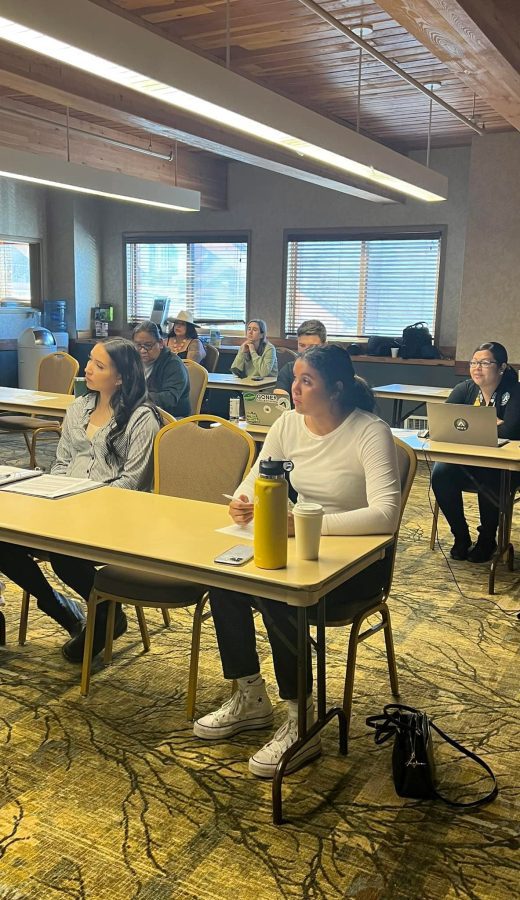
Educate
Our education program reaches high schools, colleges, tribal organizations, other non-profit organizations.
Details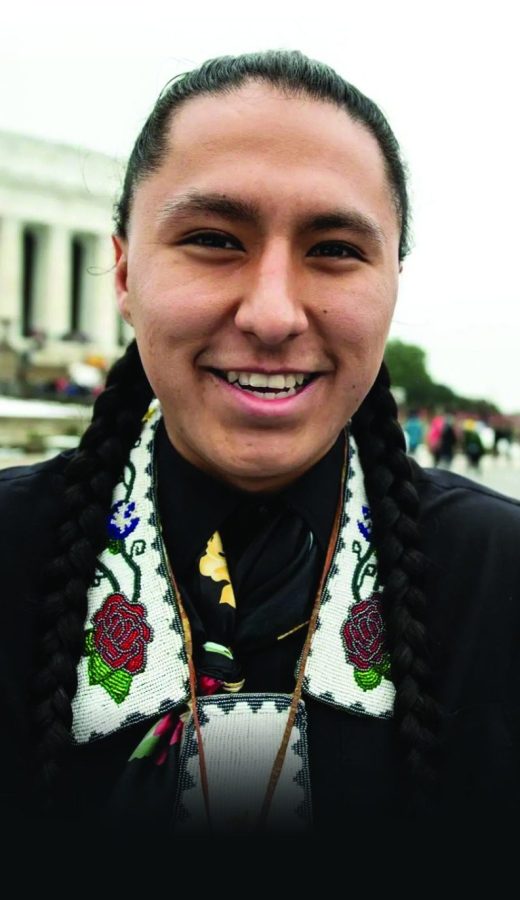
Engage
Our civic engagement program emphasizes the need for everyone to fulfill their civic duty at all levels, from school boards to county and statewide positions.
Details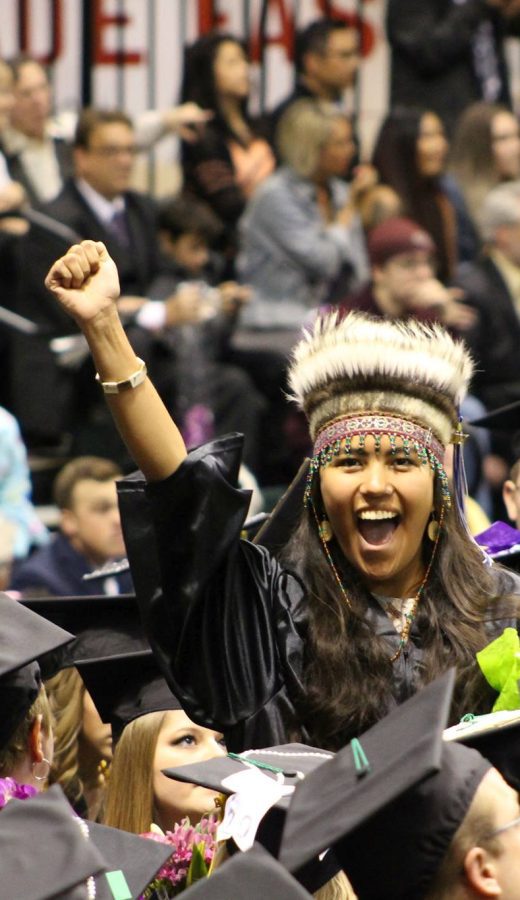
Lead
We use a culturally relevant community organizing model to train emerging leaders and engage our members.
Details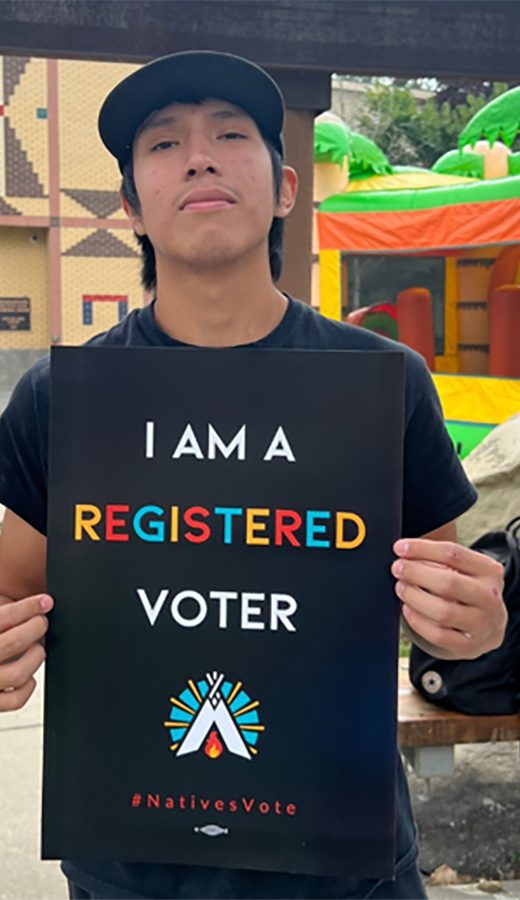
Advocate
We ensure the Native voice is part of public policy, from creation to implementation.
DetailsUpcoming Events
View Calendar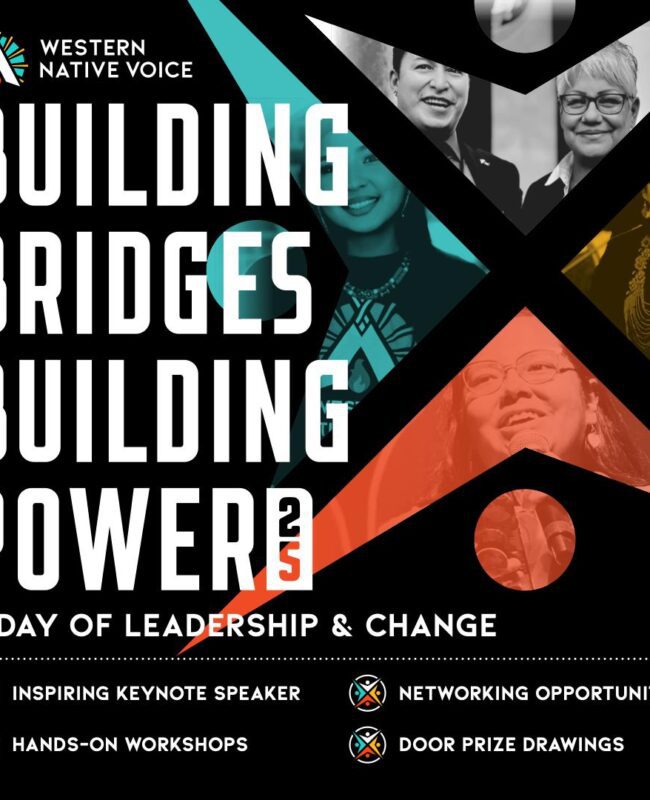
Western Native Voice’s Building Bridges, Building Power Leadership Conference – Helena

Western Native Voice’s Building Bridges, Building Power Leadership Conference – Billings

Western Native Voice’s Building Bridges, Building Power Leadership Conference – Rocky Boy
Latest News
Keep up to date.
- Mar 30, 2025
Western Native Voice’s “Building Bridges, Building Power” Conference Series Energizes Montana’s Native Communities
This spring, Western Native Voice (WNV) embarked on a statewide campaign with its “Building Bridges, Building Power” membership conferences. Launched…read more
- Mar 30, 2025
Discovering Our Path: Western Native Voice’s Expanding Horizons Inspires Native Youth Towards Leadership
BILLINGS, Mont. — This March, Western Native Voice’s Expanding Horizons program hosted its pivotal annual conference, “Discovering Our Path: Embracing…read more
- Mar 30, 2025
Carol Juneau: Championing Native Education, Defending Voting Rights, and Building Generations of Leadership
This month, we had the opportunity to speak with Carol Juneau, a longtime advocate and one of the original board…read more
- Mar 2, 2025
Historic Progress: Montana Senate Approves Indigenous Peoples Day Bill
MONTANA — In a historic development, the Montana Senate approved Senate Bill 224 on Wednesday, February 26, 2025, bringing the…read more
- Mar 2, 2025
From Foundation to Future: The Legacy of Native Women at Western Native Voice
MONTANA — A movement of change is growing across Montana’s Native communities. At its core are the dedicated staff, members,…read more
- Feb 25, 2025
WNV Member Spotlight: Melanie Sands Snyder – Embracing Heritage and Advocacy in Leadership
At Western Native Voice, we take great pride in highlighting the remarkable individuals within our community who are championing change…read more
“Supporting all our veterans and ensuring we have the services we need is important to me.”
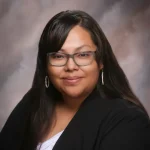
“Empowerment begins with engagement; by championing the voices of Native communities, we pave the path towards a world where equality reigns, opportunities abound, and every individual thrives without barriers.”
“Supporting all our veterans and ensuring we have the services we need is important to me.”

“Empowerment begins with engagement; by championing the voices of Native communities, we pave the path towards a world where equality reigns, opportunities abound, and every individual thrives without barriers.”
Voting FAQs
Be in the know at the polls.
Who can vote?
- Felons CAN vote (unless current incarcerated)
- You CAN vote if you are in a pre-release center
- You MAY be able to vote if you are in a tribal jail
- You CAN vote with a tribal ID
- You CAN vote if you are homeless
- You CAN vote if you cannot read or write
- You CAN vote if you are serving in the military overseas
- You CAN vote if you are away for college
- You CAN vote if you are in a medical center
What are the requirements for voting in Montana?
- Be registered as required by law
- Be 18 years old or older on or before the next election
- Be a citizen of the United States
- Have lived in Montana for at least 30 days
How do I register?
You can register to vote in Montana by visiting the Secretary of State website.
Can I vote from home?
Any registered voter may vote by absentee ballot. However, you need to fill out an Application for Absentee Ballot.
- You can research candidates while filling out your ballot
- You have 25 days to return their ballot
- You can vote from the comfort of your home
How can I find out if I’m registered to vote?
You can use the ‘My Voter Page‘ on the Secretary of State’s website. Use this service to check:
- If you are registered to vote
- Your voter registration address
- Location and directions to your polling place*
- If you are on the list to have ballots mailed to you
- The status of your mailed ballot*
- A sample ballot*
Fill out a voter registration form if your name or address information has changed and has not yet been updated with the county election office.
Have another question for us? We’d love to hear from you


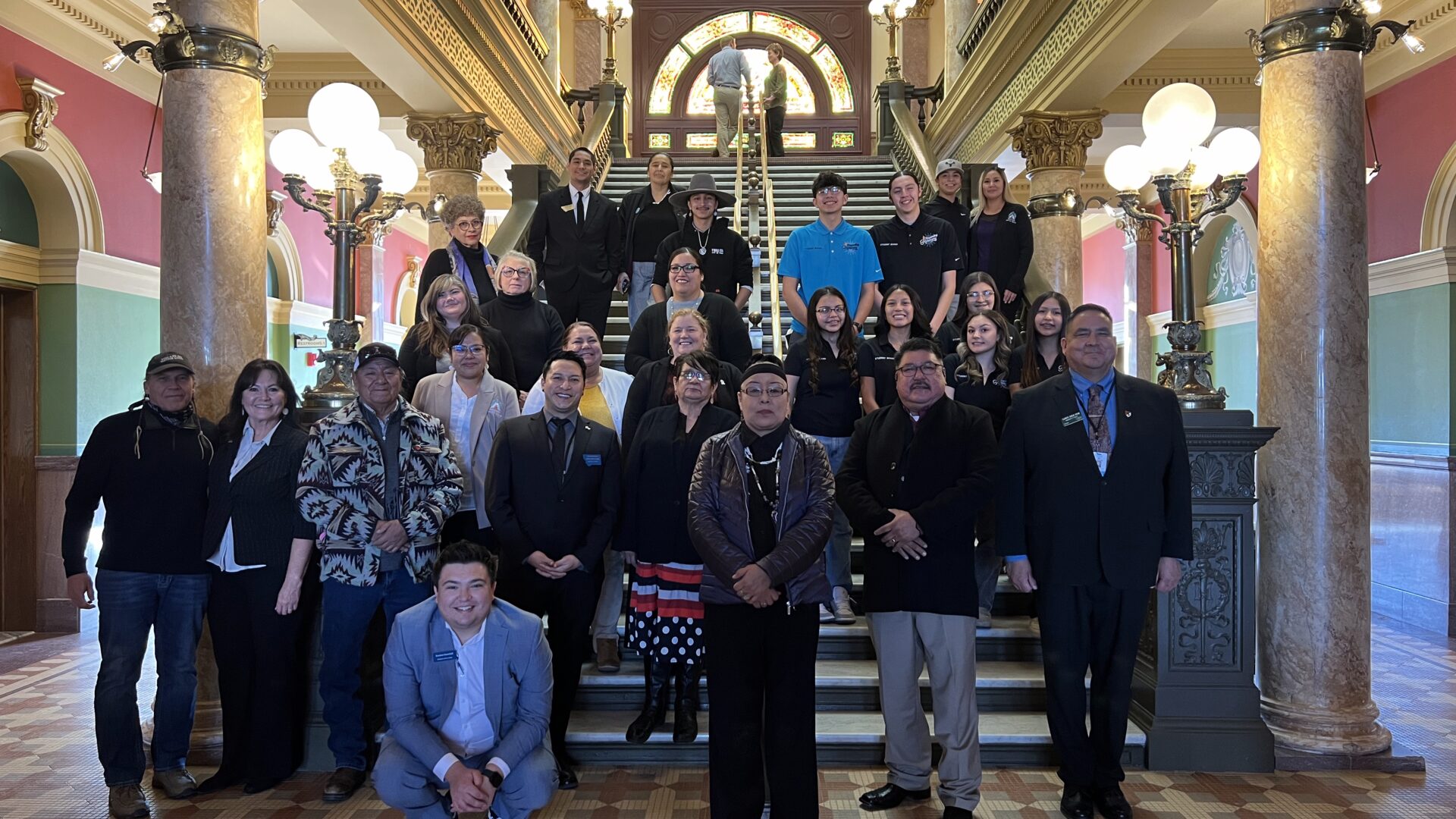
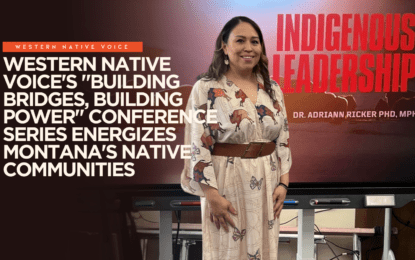
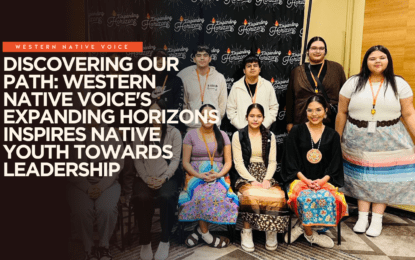
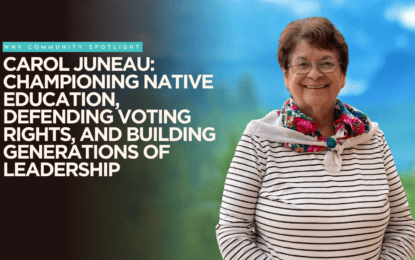
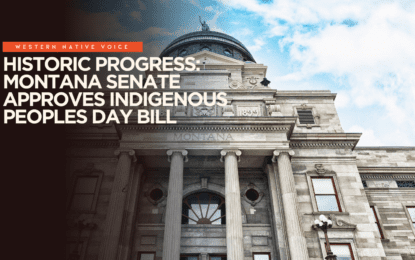
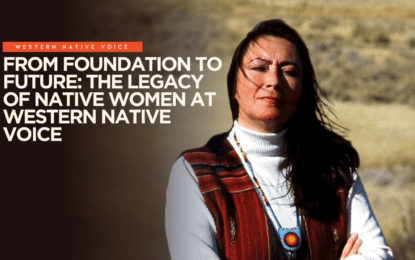
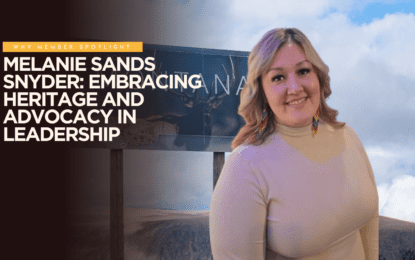
Free Film Screening: Bring Them Home / Aiskótáhkapiyaaya Presented by Western Native Voice and the Helena Indian Alliance
 The Myrna Loy – Helena, Montana
The Myrna Loy – Helena, Montana
 Thursday, April 17, 2025
Thursday, April 17, 2025
 5:30 PM – Doors Open & Light Hors d’oeuvres | 6:30 PM – Film Begins
5:30 PM – Doors Open & Light Hors d’oeuvres | 6:30 PM – Film Begins
 FREE – RSVP Required: Reserve your spot: www.eventbrite.com/.../film-screening-bring-them...
FREE – RSVP Required: Reserve your spot: www.eventbrite.com/.../film-screening-bring-them...
Join us for a powerful evening of film, conversati ... See MoreSee Less
This content isn't available right now
When this happens, it's usually because the owner only shared it with a small group of people, changed who can see it or it's been deleted.0 CommentsComment on Facebook
SB 543, which would allow Supreme Court candidates to run with partisan political labels, is on 2nd reading TODAY at 1:00 PM in the Senate.
Unlike elected officials in the legislature or executive branches, judges must remain independent, making decisions based on the Constitution, laws, and facts—not political pressures. Polls show most Montanans ... See MoreSee Less
1 CommentComment on Facebook
Should not be a “Party” position. Should be unbiased and free from political pressure!!!!!
Lili Munn, the host of the events, aims to establish a monthly market series in downtown Billings. "I hosted a successful pop-up market on March 8, 2025, and had 20 vendors and a good customer turnout," Munn said. She is passionate about advocating for local Indigenous artists and addressing their underrepresentation in Billings and across Montana.
#news #mtnews ... See MoreSee Less
Two Indigenous art markets coming to Billings this spring
www.kulr8.com
BILLINGS, Mont. – Billings will host two Indigenous art markets this spring at the Billings First Congregational Church, located at 310 N 27th Street. The events are scheduled for Saturday,0 CommentsComment on Facebook